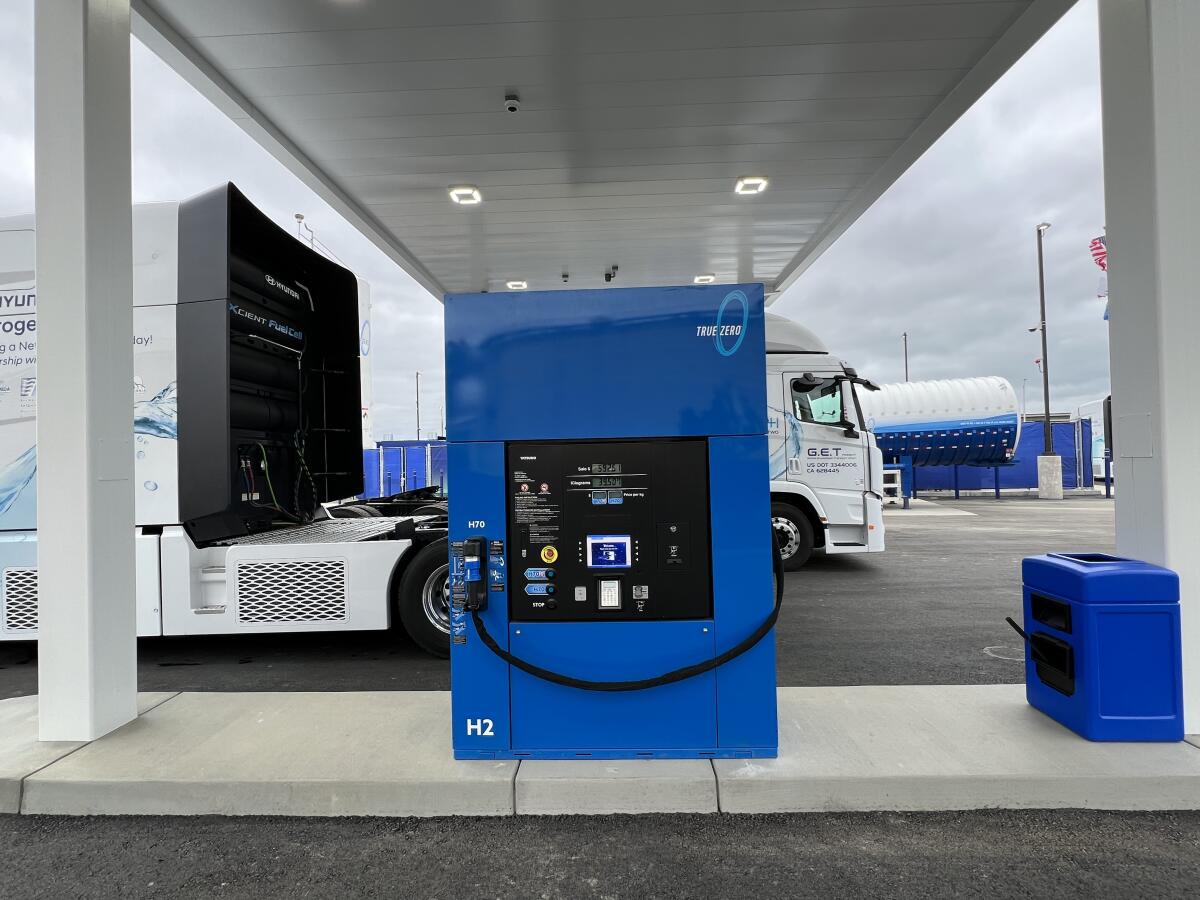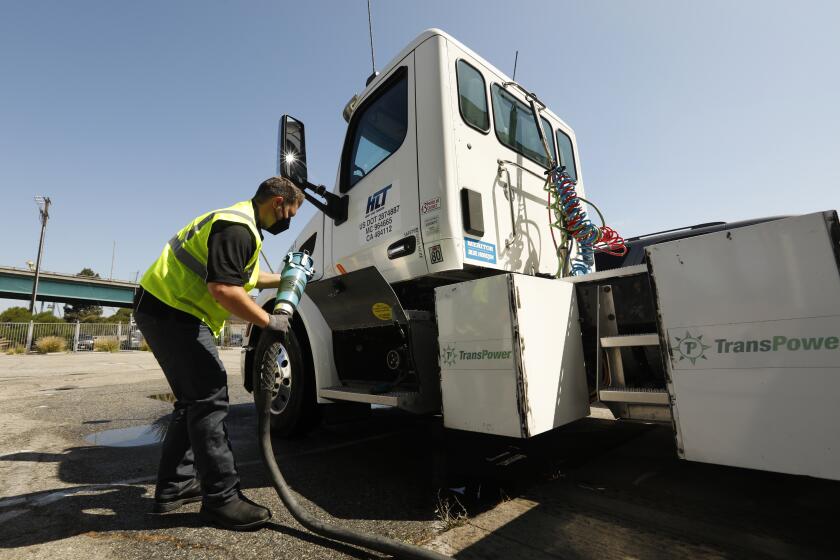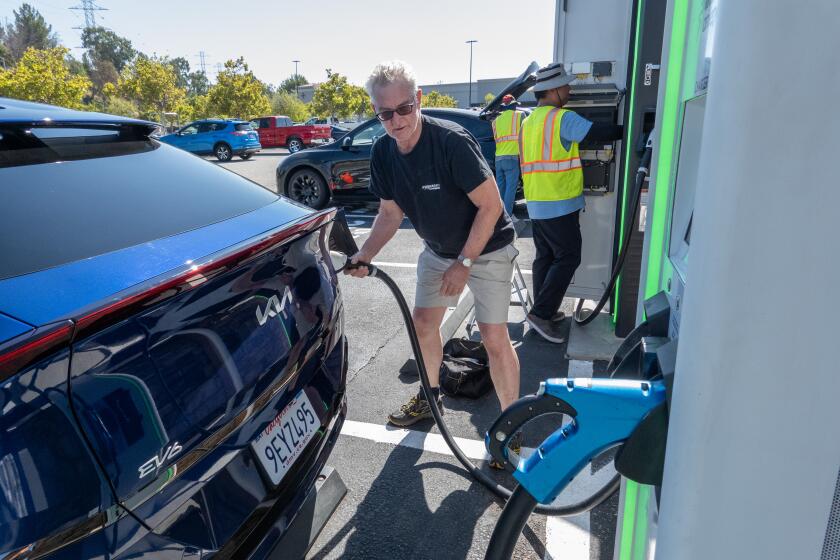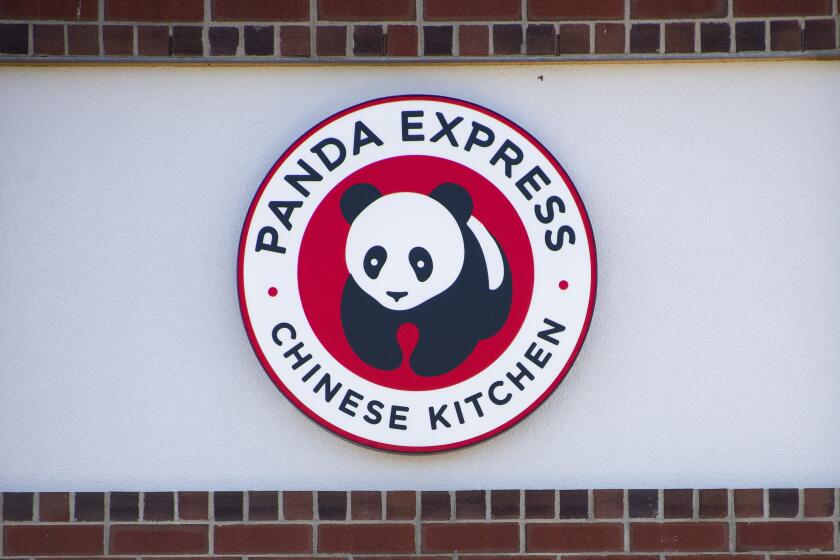Russ Mitchell covers the epic transition to electric vehicles and energy storage for the Los Angeles Times, blending technology, policy and consumerism, with a particular focus on California.
1
OAKLAND — The first commercial hydrogen fuel station for big-rig trucks in the U.S. is up and running at the Port of Oakland, a baby step toward what hydrogen proponents see as a clean new future for long-haul trucking.
The small station, now serving 30 hydrogen fuel-cell trucks, could mark the start of a nationwide network for fuel-cell truck refueling. It could also flop.
Aggressive and impactful reporting on climate change, the environment, health and science.
The challenges are immense. Hydrogen fuel is expensive — as much as four times more expensive than gasoline or diesel fuel. The fuel cells, which drive electric motors to drive the truck, are enormously expensive as well.
Making hydrogen itself is now a dirty, greenhouse-gas-generating process, although green hydrogen production is an emerging option, and even more expensive. Hydrogen proponents are banking on the idea that scaling up production will bring prices down
New diesel truck sales will be outlawed in California by 2036. Only zero-tailpipe-emission new trucks will be allowed. Already, zero-emission requirements are in place for trucks that enter ocean ports. And only two technologies are available to achieve that goal: battery electric trucks and hydrogen fuel-cell trucks. “We believe a good portion of those will be hydrogen vehicles,” said Matt Miyasato, chief of public policy for hydrogen fuel distributor FirstElement Fuel.
FirstElement, through its True Zero brand fueling stations, is the largest hydrogen vehicle fuel distributor in the U.S. Miyasato spoke Tuesday at a ceremony to mark the station’s opening, attended by state officials including Liane Randolph, chair of the California Air Resources Board; and Tyson Eckerle, clean transportation advisor for Gov. Gavin Newsom’s business development office, Go-Biz. Primary funding for the Oakland station is provided by state money channeled through the Air Resources Board and the California Energy Commission.

A hydrogen pump at FirstElement’s True Zero hydrogen fueling station at the Port of Oakland.
(Russ Mitchell / Los Angeles Times)
Hydrogen fuel holds great promise for cleaner air. It is not a fossil fuel. A fuel cell is a kind of battery that takes in hydrogen and emits only water vapor.
However, producing hydrogen itself can be very dirty. Most hydrogen produced today requires methane, which is a fossil fuel and a strong greenhouse gas contributor. The industry is working on production alternatives, including carbon capture and storage from the burning of methane, or quitting methane altogether to make green hydrogen, using an electrolyzer to split water’s hydrogen and oxygen. Both alternatives are prohibitively expensive without government subsidies.
The study, sponsored by the freight truck industry, adds to concerns over government mandates. But government officials say the move away from fossil fuels will have economic benefits.
The federal government is handing out $8 billion to jump-start what it calls the “hydrogen economy” by creating so-called hydrogen hubs. One of them will be set in California, which is expected to take in $1.2 billion for the project.
Eckerle said the hub funding will allow construction of 60 more hydrogen truck stations in California, enough to serve 5,000 trucks and 1,000 buses.
The vehicles themselves are expensive too. Both battery electric and hydrogen fuel-cell trucks can cost three times as much or more than a $120,000 diesel truck. Those buying the trucks can qualify for state and federal subsidies to make up most of the upfront costs.
Battery electric is gaining a strong foothold in the medium-sized delivery truck market, but hydrogen could have a leg up for long-haul trucking. While a fuel cell is comparable in size to a diesel engine, a battery big enough for long-haul trucks adds weight and size and cuts down on the total freight load the truck can deliver. And while an battery electric truck can take hours to recharge, the refill time for hydrogen is more comparable to filling up with diesel fuel.
California has ambitious climate goals, including a pledge to ban the sale of new gasoline- and diesel-powered cars and light trucks by 2035.








